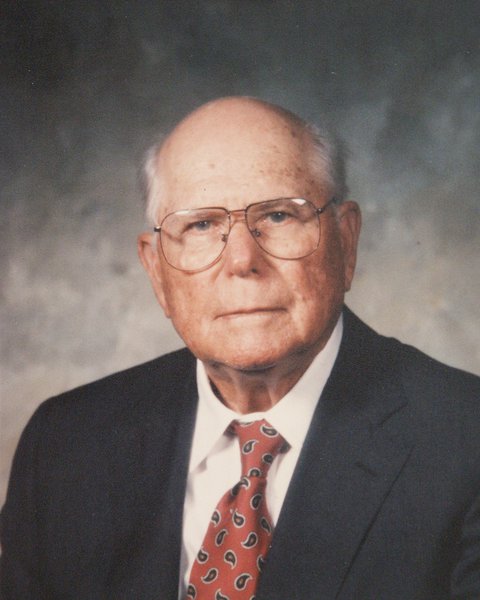
Class V
Edgar “Chip” Farmer
Edgar “Chip” Farmer was born in Russellville, but his family moved to Dumas in 1913 when he was 9 months old. He graduated from Dumas High School. He and his wife Mary began farming cotton in Garrett Bridge community in 1937, with corn and hay to feed livestock. Mr. Farmer was the first in the area to irrigate cotton in 1948—and in the the dry years of 1952-56, other farmers followed his example. In 1954 he was among the first in the area to plant rice and succeed at it. In 1958-59, he began experimenting with catfish fingerlings in a farm pond. In 1960, he fed out catfish in a 25-acre pond, being a pioneer in that industry in Arkansas. Mr Farmer enlisted the technical assistance of Dr. Roy Grizzell to develop better feeding processes, and they developed a commercial feed for catfish. Mr. Farmer was also a partner in the first catfish-processing plant in the state. In the 1950s, Mr. Farmer and his family were chosen as the “Arkansas Master Farm Family” by the Progressive Farmer magazine. They were chosen as “Lincoln County Farm Family of the Year” and later, the Southeast District winners in 1969. In 1971, Readers’ Digest magazine featured Chip Farmer in an article on fish farming, and in 1973, the Catfish Farmers of America honored him as its very first “Catfish Farmer of the Year.” In 1987, Progressive Farmer magazine named him the “Man of the Year in Service to Agriculture in the Mid-South.” Over the years, Mr. Farmer has been joined in farming by his sons and grandsons. Their operation produces millions and millions of catfish annually and now uses an innovative concrete raceway system in production of catfish. Mr. Farmer was among the eight persons founding the Catfish Farmers of America. The tradition of service continues: his son Kelly has served as president and secretary of Catfish Farmers of America, and his grandson Scott Farmer has served as president. Mr. Farmer’s pace-setting in agriculture is well-documented. In addition he has been a valuable citizen in the Dumas community. He and his family are committed to the First United Methodist Church and to the betterment of people.
